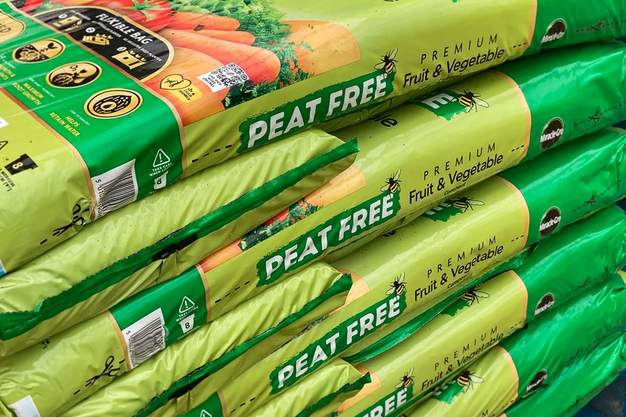The Royal Horticultural Society (RHS) has revealed findings, at its annual industry peat-free conference, from trials that demonstrate peat-free growing media can perform comparably or better than peat-based alternatives using the same amount of water.
The trials were carried out with four growers from across the UK – covering alpines, ericaceous plants, shrubs, and herbaceous perennials – and six growing media manufacturers. The trials evaluated a number of factors including understanding the irrigation and nutrition requirements of different peat-free mixes as well as the saleability of plants produced. The participating growers each tested up to six peat-free mixes against a nursery peat-added control.
During the trials, the commercial growers maintained their usual irrigation practices without making any adjustments for the peat-free media. The results showed that when treated under standard nursery production conditions, some peat-free options outperformed the peat-based control when it came to water retention and use.

In addition, across all four nurseries, some plants grown in peat-free mixes were considered more marketable than those grown in peat-reduced controls, as evaluated by nursery staff.
According to a survey of more than 400 growers carried out by the RHS in 2023, irrigation management was cited as the main concern for transitioning away from peat. This has been a key focus for RHS research with growers and growing media manufacturers to assist in developing new growing media technologies that avoid the need for extra irrigation.
"Peat-free media's 'dry on top' appearance can sometimes mislead growers into overwatering but these new findings provide an opportunity for growers to review and optimize water use. By better understanding the unique water retention properties of their chosen peat-free growing media, growers can potentially reduce water use without compromising plant quality.
Improved water management also offers added benefits for nutrient retention. Addressing overwatering and leeching ensures nutrients remain available to plants longer, enhancing growth efficiency whilst reducing environmental impact. These findings reinforce the potential of peat-free growing media to support sustainable horticultural practices while meeting growers' operational needs. Irrigation, nutrition, and propagation will remain the key focus of the RHS Peat-Free Fellowship."
The collaborative RHS Peat-Free Fellowship supported by Defra works with eight commercial growers - Allensmore Nurseries, Hillier Nurseries, Hills Plants, Johnsons Nurseries, The FarPlants Group, Lovania Nurseries, Vitacress and Volmary – and a range of professional growing media manufacturers catering to the ornamental horticulture industry. The growing media used in these trials are all commercially available at scale to the industry and sourced from Bulrush Horticulture, ICL, Jiffy, Klasmann Deilmann, Melcourt, and Sinclair. Trial results and key takeaway messages will be made available as soon as the trials are completed.
Dr Alistair Griffiths, RHS Director of Science, said: "These trials provide robust evidence that peat-free growing media are as water efficient as peat-based in spite of the preconceptions. This is an exciting development for the environmental horticulture industry, as it highlights the progression towards accelerating the transition to peat-free and improving water and nutrient management. These findings mark an important step towards more sustainable, peat-free practices across the sector."
For more information:
Royal Horticultural Society
www.rhs.org.uk
